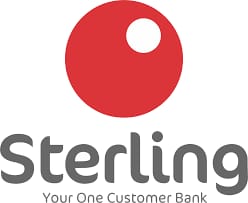In a groundbreaking move poised to reshape Nigeria’s banking landscape, Sterling Bank has announced the removal of transfer fees for all local online transactions, becoming the first major financial institution in the country to take such a bold step.
The announcement, made on April 1, initially sparked skepticism, with many dismissing it as an elaborate April Fools’ prank. However, Sterling quickly confirmed that the policy is genuine and has taken immediate effect, signaling a major shift in customer-focused banking.
By eliminating transfer charges, Sterling Bank directly challenges a long-standing industry practice that has increasingly frustrated customers amid the rising adoption of digital banking.
“We believe access to your own money shouldn’t come with a penalty,” said Obinna Ukachukwu, Growth Executive leading the Consumer and Business Banking Directorate. “This decision is driven by our values. It’s about fairness, inclusivity, and putting customers first.”
Sterling’s new policy ensures that customers using the bank’s mobile app will no longer incur charges on local transactions, a move that is expected to generate significant savings for individuals and small business owners who rely on frequent digital transfers.
Public Reaction and Industry Implications
The initiative has garnered widespread praise, particularly on social media, where users lauded the bank for setting a new precedent. A viral message on WhatsApp encapsulated public sentiment: “Please my good people, this is not a joke! Sterling Bank has just shocked Nigeria today! My neighbor Justina just transferred N100k with no charges! God bless Sterling Bank!”
Sterling has a track record of putting customers first. During the COVID-19 pandemic, the bank provided supplementary payments to public hospital healthcare workers, demonstrating its commitment to social responsibility. This latest move reinforces its reputation as an industry trailblazer unafraid to challenge conventional banking norms.
As pressure mounts on other banks to follow suit, industry observers speculate that Sterling’s decision could trigger a broader shift towards more customer-friendly banking policies.
“We’re not the biggest bank in Nigeria, but we are the boldest,” Ukachukwu stated. “Sterling believes in the future of Nigeria, and this is us backing Nigerians with more than just words.”
With this bold policy, Sterling Bank is redefining what it means to be a customer-first financial institution, setting a new standard for ethical and transparent banking in Nigeria.












